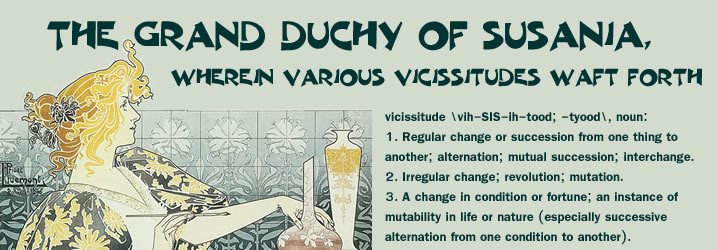
She agreed and called him "hot" which bothered me excessively. "Hot" is what you call the buffed and brainless, not a genuine talent with an attractive personality that radiates through their skin. She took exception to this, saying that "Hot" is whatever you want it to mean in terms of attractiveness; she also prefers the brainy and personable over the brainless and built and so if she finds Eccleston "hot", then he is.
But the description is overused! I complained. It's commonplace - Paris Hilton uses it - it has no value. I suggested the more refined and complimentary descriptive of "Ambrosial," derived from ambrosia: food of the gods.
for example: "Christopher Eccleston is positively ambrosial in his new role on Heroes." (He's the one with the beard, BTW)
I suspect she will further contest the issue with me via email; but it got me to thinking about the dilution of other words. In the last week I've been thinking (as I have many times before) how we say "I love such-and-such" and how "love" has essentially lost the punch of any real meaning. Same with "awesome" - if something truly is Awe-some, it would knock us down. But when you use it to describe a pair of shoes... well, it's pretty much lost it's original meaning.
But as a result of the devaluation of certain words like love and awesome, lesser words have gained greater weight. Someone said the other day that they really "liked" me, and I found that a compliment of no mean order! To be liked means more to me than to be loved... isn't that odd?!
I should say, I'm not really bothered that words like "love" and "awesome" don't mean the same thing anymore - language is perpetually mutating, and societies will always come up with other words to communicate deep and important feelings. The Japanese language didn't have a word for love in the sense of modern, Western ideals of love until the 20th century; the best they could do prior to that was ai, which actually meant "duty"! Now they have some other words that get the job done, or they use the English "love". Words never stop changing, until they die from disuse and are fossilized in the OED.


No comments:
Post a Comment